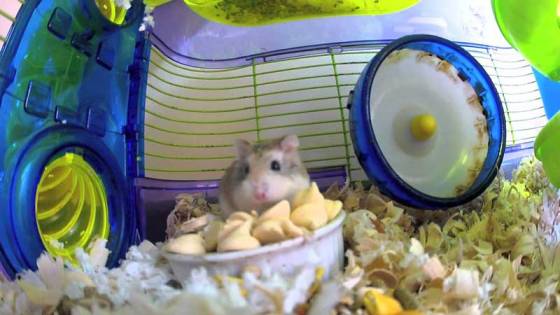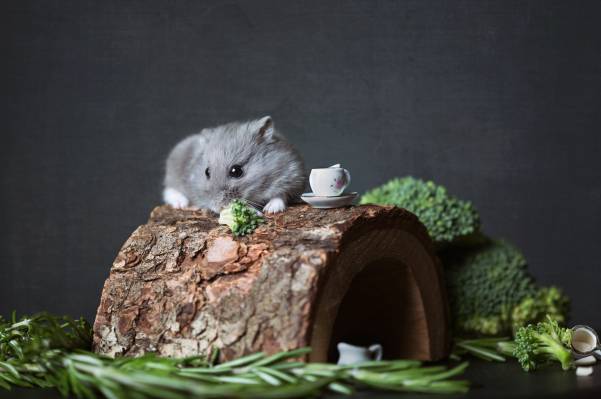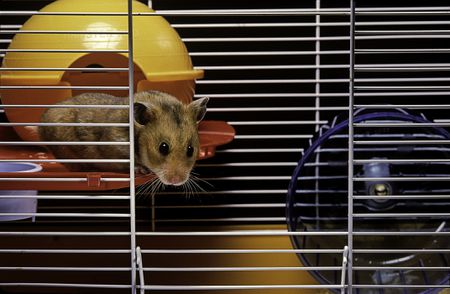Hamsters are so cute and fuzzy that we sometimes forget they can also be little hunters. In fact, hamsters have been known to eat spiders! If you’ve seen this type of behavior in your little furry friend, you may have been shocked. We don’t blame you!
Connect with a verified veterinarian in minutes. Licensed vets are available 24/7 to answer your questions. No need to worry about your furry family member.
Hamsters in the Wild are Omnivores
Did you know that wild hamsters are omnivores? This means they eat a variety of plants and insects as a part of their normal diet. In other words, insects are prey to hamsters! Who would have thought? We normally view rodents, including our hamsters, as being prey. That’s true; they are prey to larger animals. However, hamsters and other rodents are also great little hunters!
If you saw your hammie eating a spider, you may have missed the hunting part of that equation. Hamsters will actually hunt a spider down much like a cat hunts down small critters. It’s a very interesting process to see a small, cuddly hammie hunting! But it does happen, and this is very normally behavior, even for domesticated hamsters.
Knowing this, you may want to give your hammie a little more respect for being the great hunter he is!
Can Your Hamster Be in Danger from Eating Spiders?
Yes, there are some dangers involved if a hamster eats a spider. For one thing, if the spider is venomous, and the hamster puts the spider in his cheek pouch, the spider could bite and cause a problem. This could range from toxins entering your hammie’s body to a cheek pouch infection.
If your fur baby develops a check pouch infection, you may notice these symptoms:
- Lethargy
- Loss of appetite
- Inflammation
In this type of situation, you’ll need to call the vet right away. Hamsters can quickly become sick and not really show signs until they’re very sick. So, at the first sign of illness or a pouch infection, be sure to get your hammie to vet as soon as possible.
If you believe your hamster’s been bitten by a poisonous spider, then call the vet right away. You may just save your hammie’s life.
In most cases, however, eating a house spider shouldn’t be a problem. Most of these are not venomous.

Review symptoms, medications & behavior to keep your pets healthy with a Vet Online in just minutes.
Ask a Vet Live NowPrevent Your Hammie from Eating Spiders
To avoid any issues with your hamster and spiders, prevention is the best medicine of all. Make sure to keep your hamster’s cage clean and clean out any cobwebs that are near the cage. If spiders are a huge problem, it may be time to call the exterminator.
However, let the exterminator know about your hammie and any other pets. They will have the knowledge to keep your hamster safe, while ensuring your home is rid of spiders.
Connect with a verified veterinarian in minutes. Licensed vets are available 24/7 to answer your questions. No need to worry about your furry family member.

Julie
Julie is a graduate of the University of North Carolina, Wilmington, where she studied Animal science. Though contrary to the opinion of her parents she was meant to study pharmacy, but she was in love with animals especially cats. Julie currently works in an animal research institute (NGO) in California and loves spending quality time with her little cat. She has the passion for making research about animals, how they survive, their way of life among others and publishes it. Julie is also happily married with two kids.
Review symptoms, medications & behavior to keep your pets healthy with a Vet Online in just minutes.
Ask a Vet Live Now



